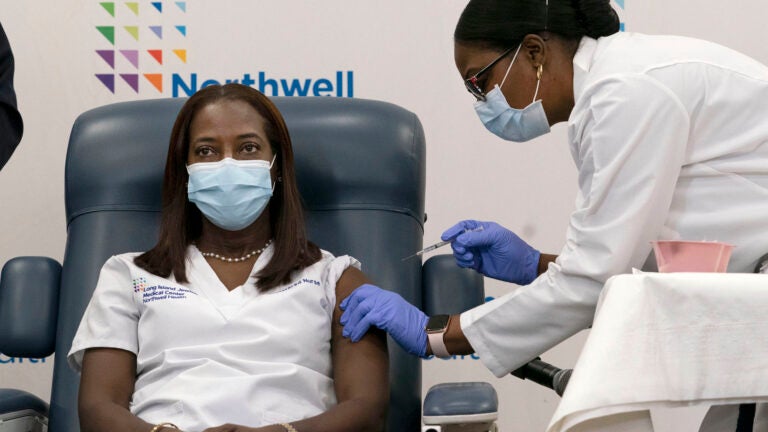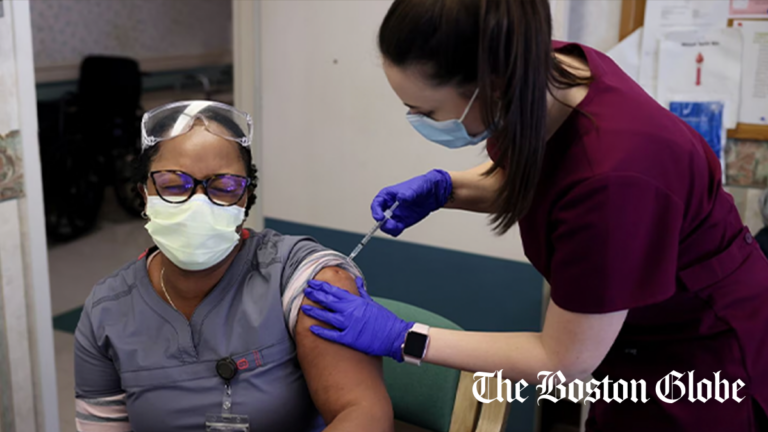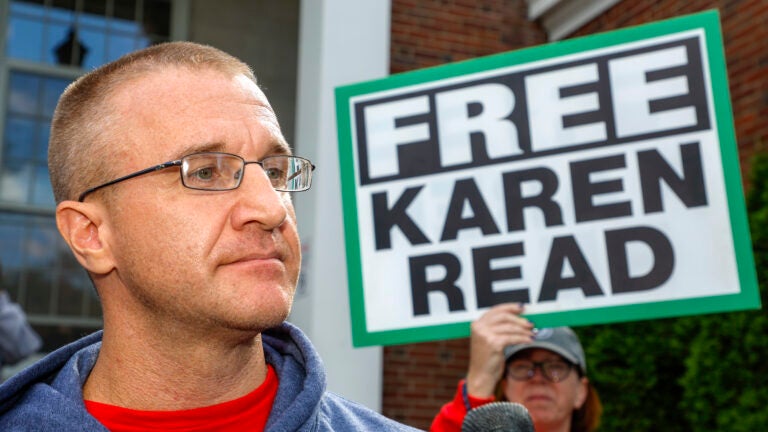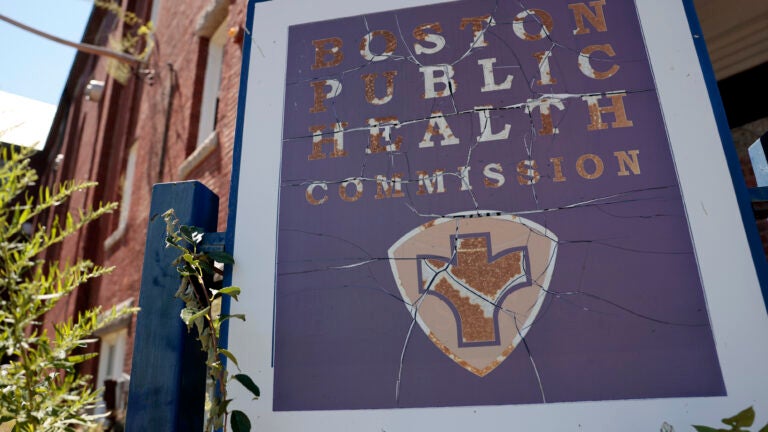Here’s why readers are against vaccine mandates for health care workers
“It’s time to let each person decide for themselves if they want to get the booster and/or flu vaccine,” one of the more than 240 respondents said.

Current state rules do not require most health care workers to be vaccinated against COVID, but newly proposed amendments could change that.
The amendments address COVID-19 and influenza vaccinations for personnel of clinics, out-of-hospital dialysis units, hospice programs, hospitals, adult day health programs, emergency medical services, and long-term care facilities — all of which are subject to medical, religious, and personal exemptions.
Specifically, “each hospital shall ensure that all personnel are vaccinated with seasonal influenza vaccine, consistent with any guidelines of the Commissioner, unless an individual is exempt from vaccination,” the proposed amendment for hospital licensure states.
Currently, health care workers in hospice and nursing homes are required to be vaccinated but are allowed medical and religious exemptions.
Some health care leaders, however, such as the Massachusetts Health & Hospital Association, are worried the ambiguous wording in the new amendments could create confusion about the implementation of the new rules, not to mention that enforcement could end in “unnecessary and costly litigation.”
Others, like the Massachusetts Senior Care Association (MSCA), praised the proposed amendments to the existing regulations, saying they will “go a long way toward ‘leveling the playing field’ in regard to enabling facilities to recruit new staff to the long-term care sector.”
Health care remains rocked by labor shortages in Massachusetts and around the country, according to a Health Policy Commission report from March.
Registered nurse vacancy rates in Massachusetts hospitals doubled from 6.4% in 2019 to 13.6% in 2022, with especially high vacancy rates in community hospitals, the report says.
The exodus of health care workers has been attributed to tighter labor markets, according to the report, with workers moving from lower- to higher-resourced care settings and organizations or away from patient care to administration or research. At the same time, some health care workers are leaving the industry entirely, particularly those in lower-wage roles. The report did not indicate vaccine mandates were a reason for health care worker staffing shortages.
Boston.com readers were also concerned about how a vaccine requirement could affect staffing shortages.
Jay from Plymouth said healthcare staffing shortages were already “extremely tight,” and he warned adding a vaccine requirement would be “draconian” and “a horrible idea.”
Stevie from Peabody echoed Jay’s concerns about how vaccine mandates could affect health care staffing: “People have left jobs they love because of this,” he said.
Among healthcare workers, attitudes regarding vaccine and booster mandates are nuanced, according to a National Institute of Health study of healthcare workers working in Massachusetts during the COVID-19 pandemic.
“Many supported mandates to protect their patients’ health, others emphasized personal autonomy, while some were against mandates if job termination was the consequence of declining vaccines,” the report said.
Of the 224 readers who responded to our poll, about 70% said they did not agree with the proposed amendments, with 30% in agreement. The majority of respondents (68%) also said they were not getting a COVID-19 booster shot this fall, despite recommendations by the CDC.
See examples of what readers had to say about the proposed amendments to COVID regulations for health care workers.
Responses have been edited for length and clarity.
NO
“It’s time to let each person decide for themselves if they want to get the booster and/or flu vaccine.” – Kaylyn, Amesbury
“Not their right to dictate what an employee puts in their body!” – Deran M., Belmont
“I have received a booster already and would like to be given the choice to receive another, not be made to. I work in health care and regularly wear a N95 by my choice as such I should be given the choice to have another shot. I will get my flu shot but no thanks for the COVID shot.” – Anonymous reader
“Nobody should be forced to receive any medical treatment they don’t want.” – Jeff C., Riverside
“As a nurse, I am horrified that the state believes I have no right to my own body anymore. This will make the employee shortage we are already facing even worse.” – Anonymous reader
“Calling it a requirement and allowing exemptions for medical, religious, and personal reasons makes no sense.” – James D., Belmont
“I got all the shots yet still got COVID three times so I think ‘requiring’ it is not really doing anything but putting money in the pockets of Big Pharma. Should be a personal choice.” – Joe, North End
“It’s been over three years since COVID was first discovered. When are people going to stop using it as an excuse to control other people’s lives and personal decisions?” – Carl S., Hanover
“Stop dictating how individuals should live. It is their choice!” – Susan M., Canton
YES
“I think that if you are in direct patient care and are choosing not to mask, then you should be vaccinated as mandated by your employer. This not only keeps you safe, but it also is respectful to your patients who may not be able to be vaccinated or are immunocompromised. I am saying this as someone who used to be in patient care full-time but has transitioned out. I will still be getting my flu shot and COVID booster as advised by my physician.” – G., Woburn
“People in healthcare settings dealing with sick and immune-compromised people should definitely be required to get the vaccine to help minimize risk.” – Jordan, Burlington
“With the removal of masking in health care settings it is even more important to both protect health care workers and patients for COVID outbreaks so this amendment is essential to a functioning health care system.” – S.A., Cambridge
“I have autoimmune issues and lung damage. I think all essential workers should be vaccinated if they are to deal directly with the public. Police, firefighters, EMTs, doctors, and nurses are people we have to depend on and trust with our lives. If they choose not to be vaccinated they should be put on desk duty or unpaid leave. If they have not protected themselves against the virus, they can not protect us.” – Mary F., Eastham
“Healthcare workers who see multiple patients can unknowingly be the vector that carries an infectious disease from one patient to another. If you do not want to be vaccinated against infectious diseases, then you should go into another line of work.” – Vinca, Worcester County
“This should be the absolute bare minimum for the medical industry. Even non-patient-facing roles in the healthcare industry have the potential to spread a virus just by being onsite. The way I see it, unless you’re in a fully remote role with no physical interaction with any patients or coworkers, there should only be medical exceptions (And any medical exception should be accompanied by a mandate for PPE whenever on-premises).
“Like it or not, these diseases that hospitals are trying to require vaccination for are, without exception, extremely communicable. This isn’t about your religious freedom or your own agency, this is about patient safety and there’s no place in the healthcare industry for anyone who does not make patient safety their first priority. If you put your own wants over patients’ needs, find another industry.” – Healthcare Employee, Malden
“If you are working in the health field you have a responsibility to protect patients. Just as physicians should do no harm, the same applies to all health care workers who come in contact with the public. And, of course, you yourself should be healthy even if that means doing something inconvenient like getting a booster.” – Kathleen M., Somerville
“Hospitals have long (decades) required employees to be vaccinated for various diseases and to have yearly flu shots. There have always been approved exemptions. It is in the best interests of patients, staff and coworkers for employees to be vaccinated based on medical data. Those who refuse to put others’ health concerns first can choose to work elsewhere.” – Homer, Wellesley








Be civil. Be kind.
Read our full community guidelines.